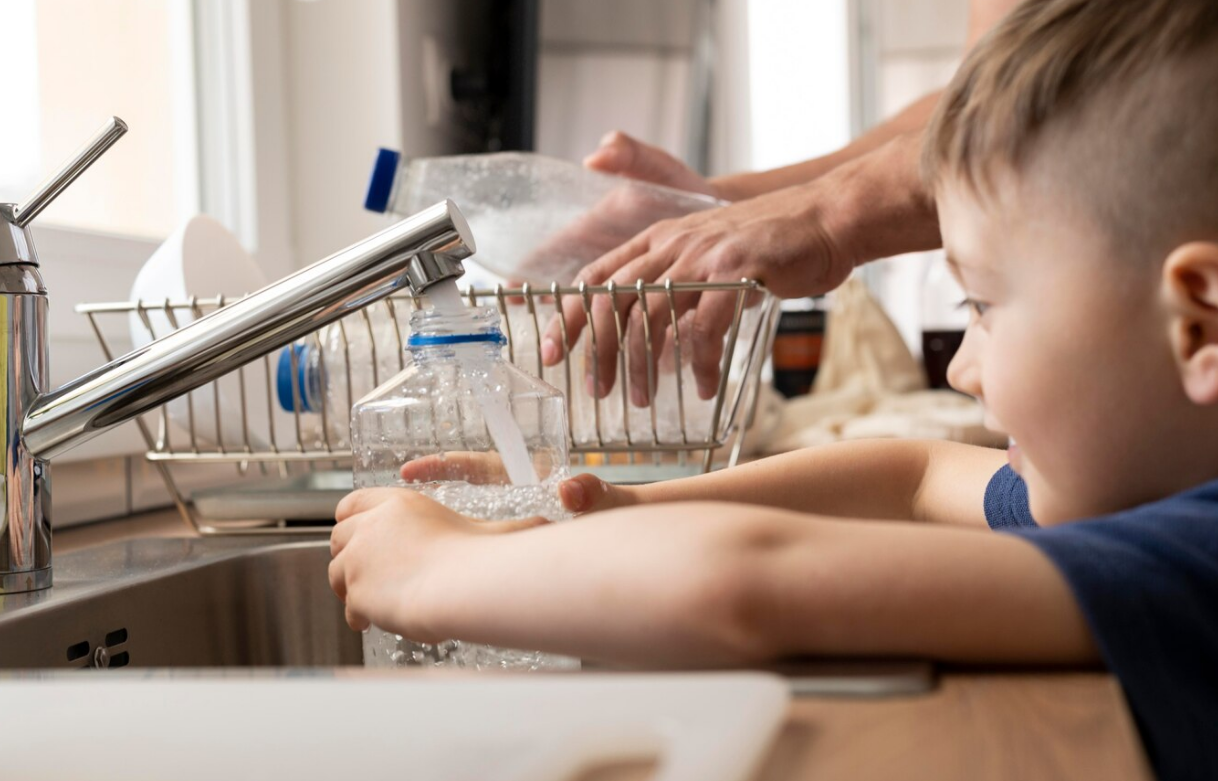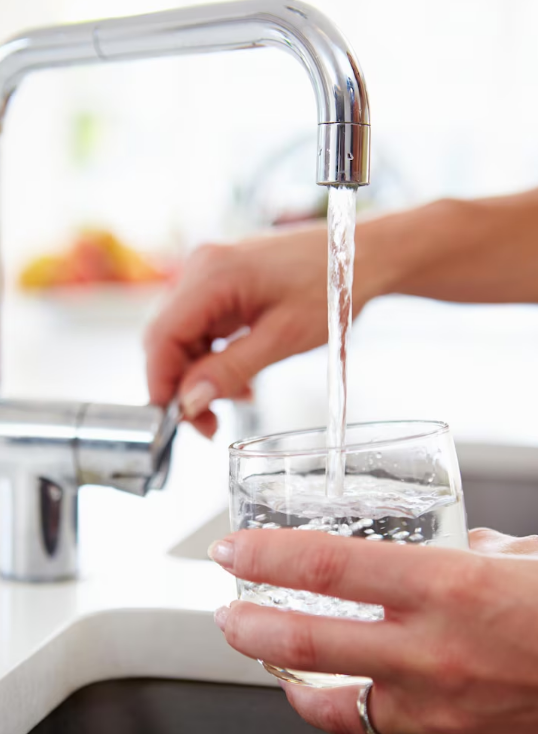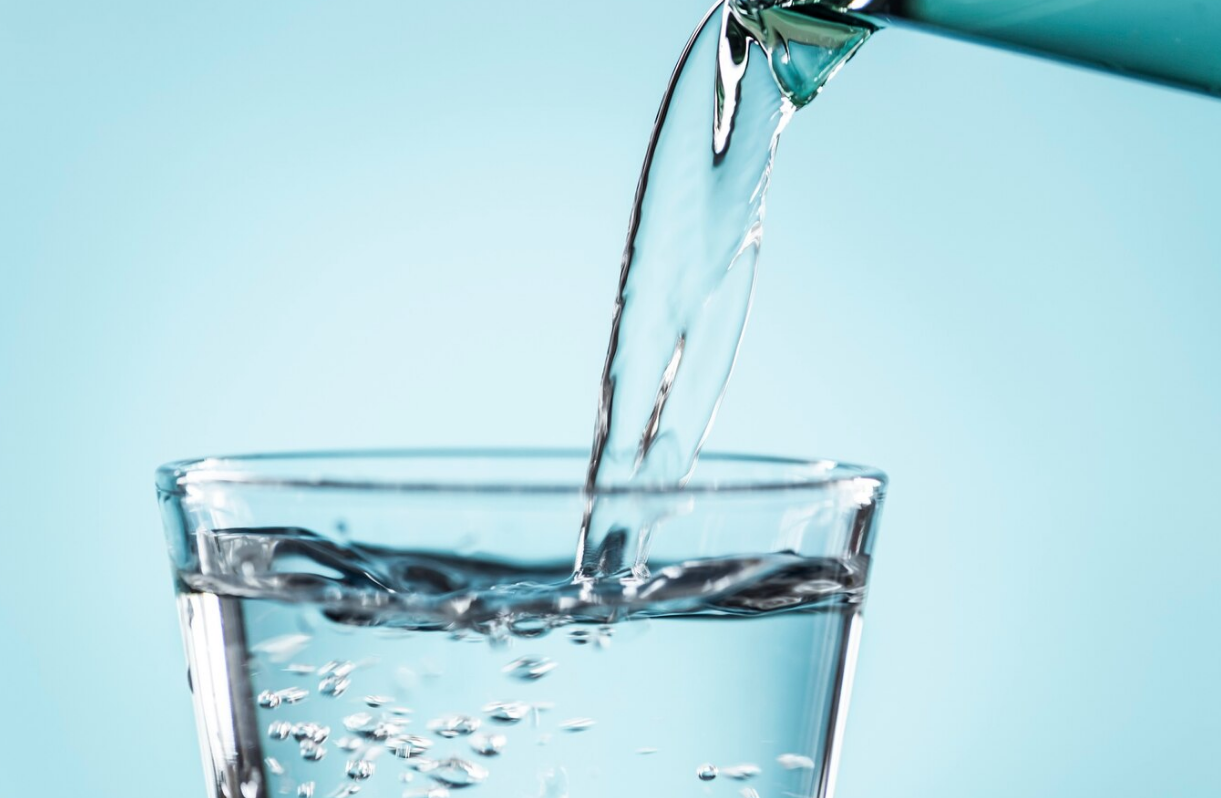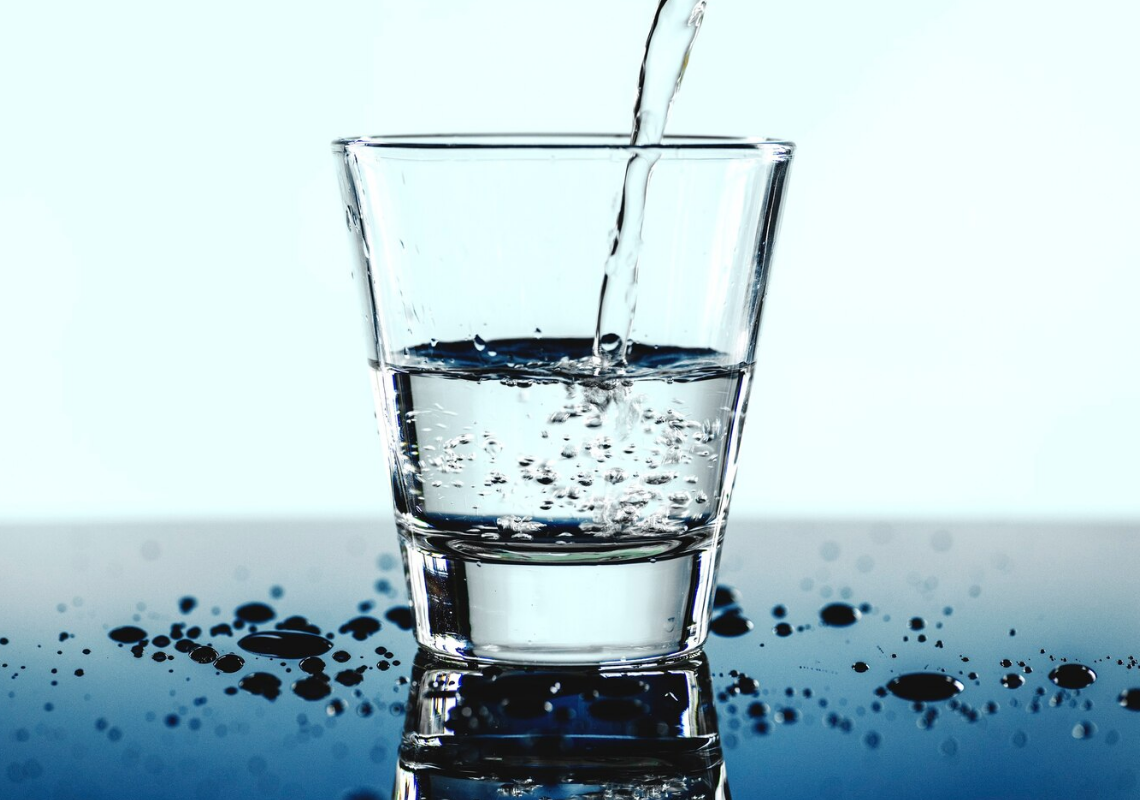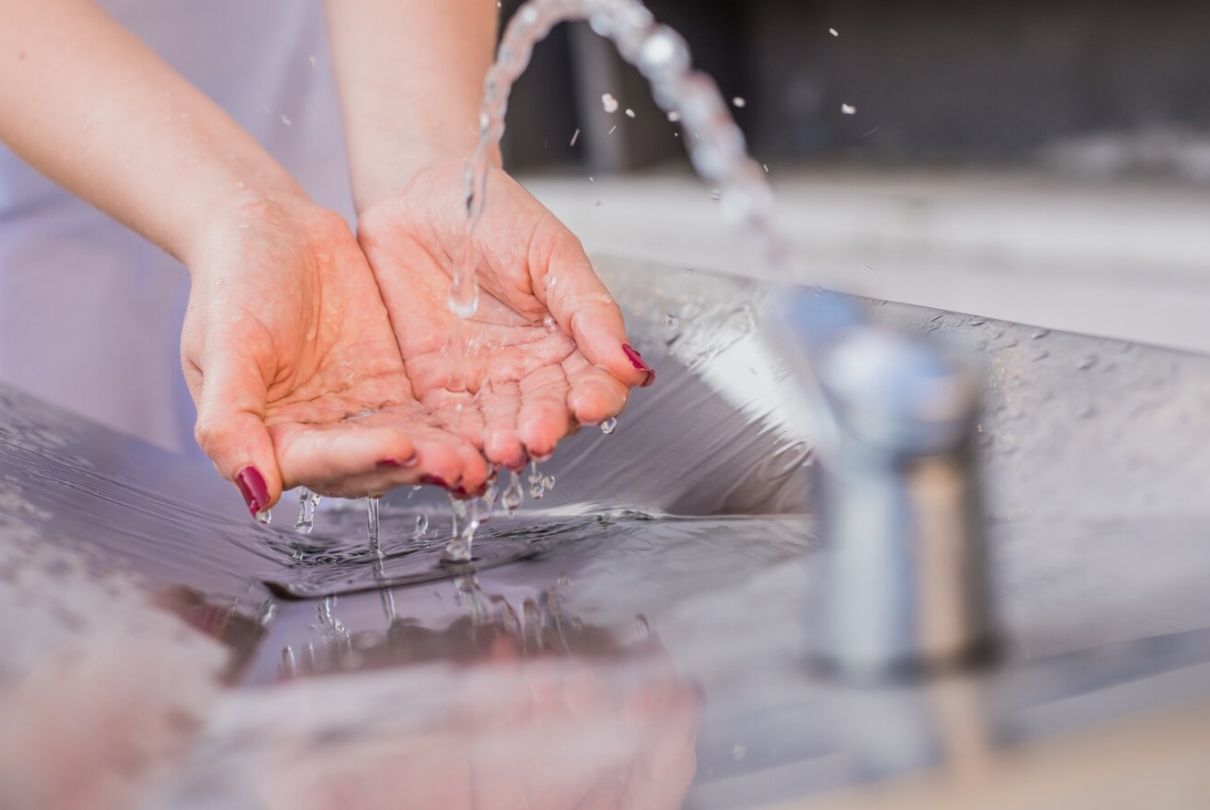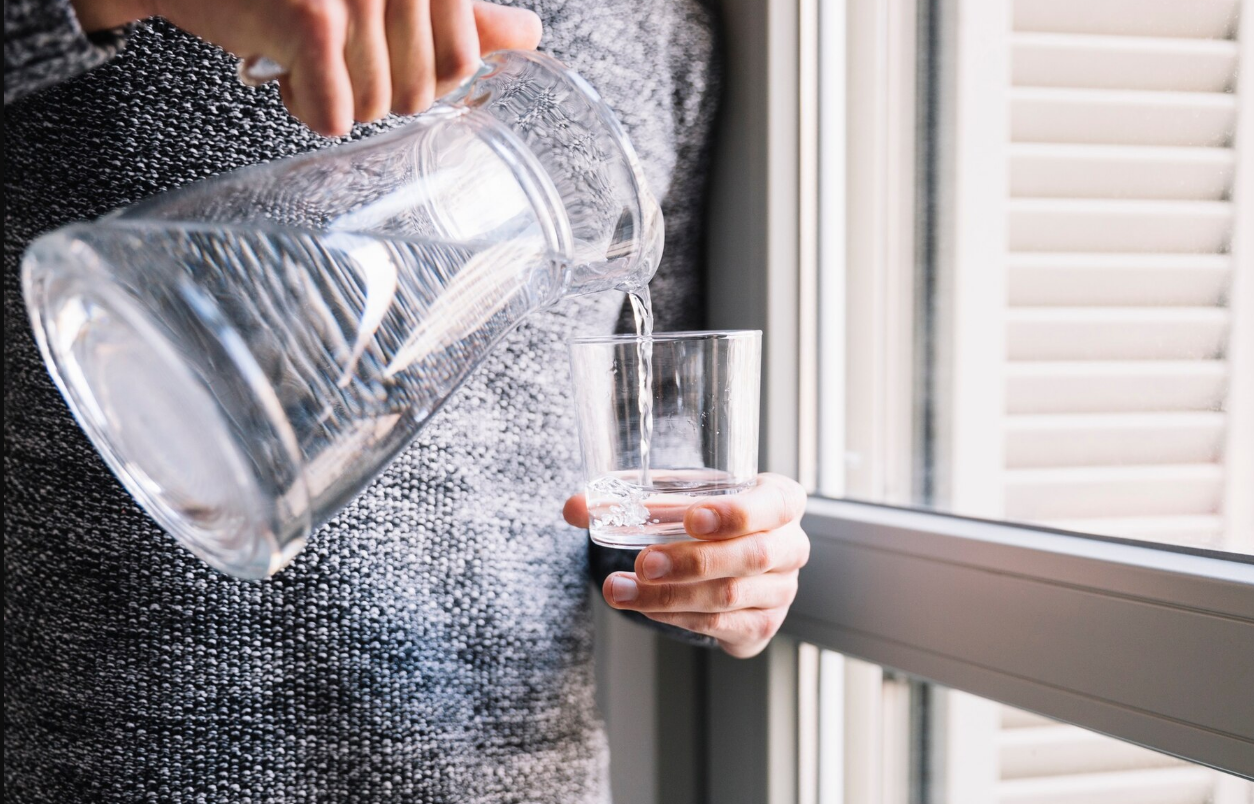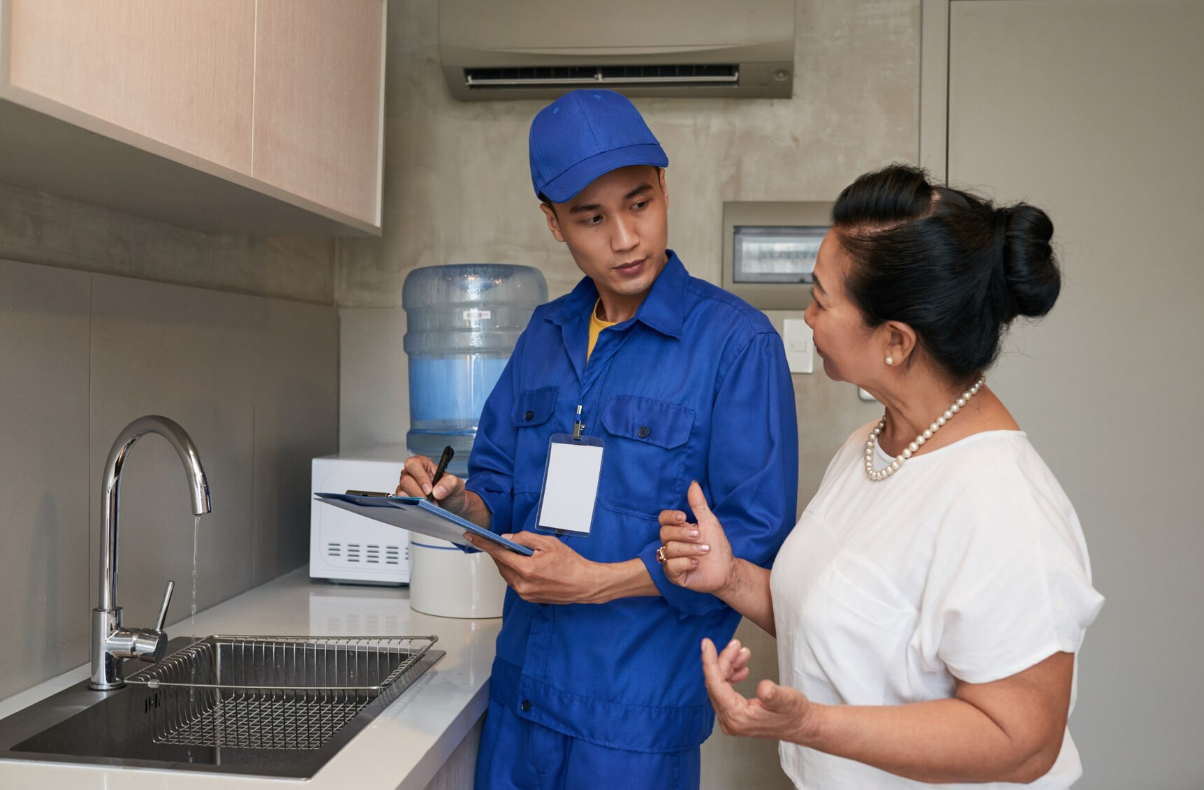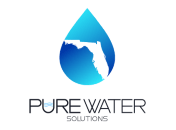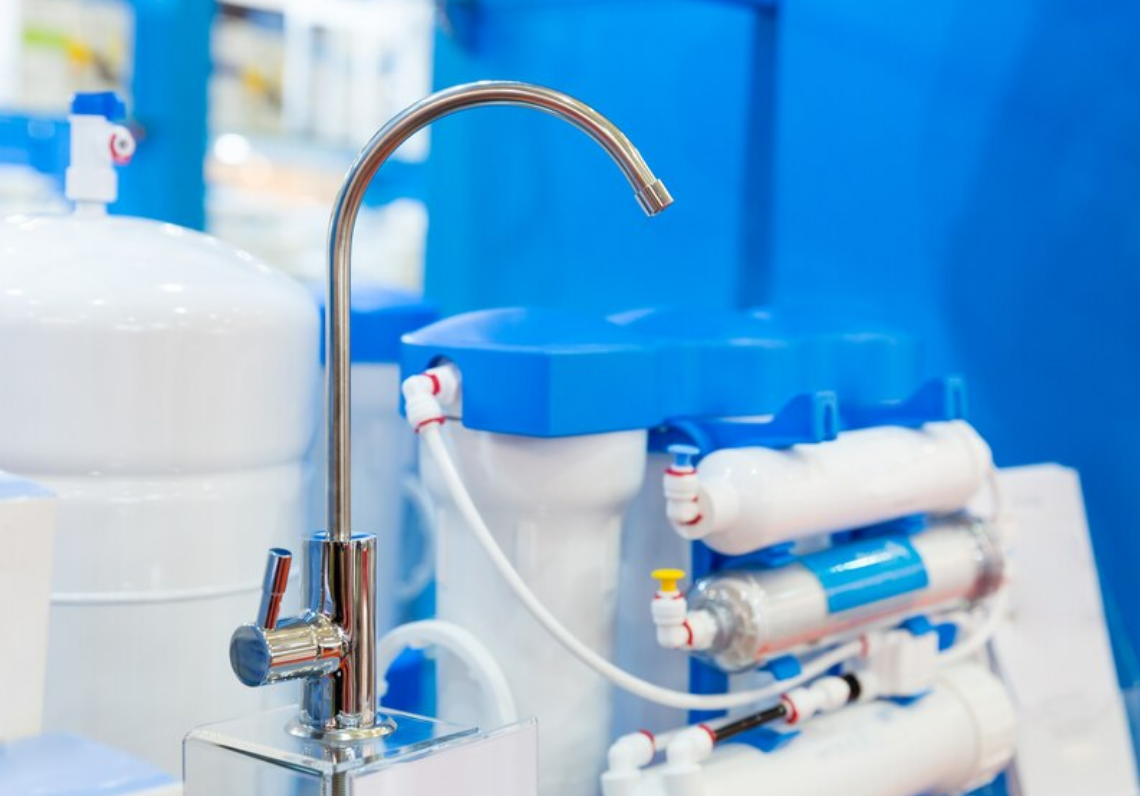Why Your Fridge Water Filter is Leaking and How to Fix It
Why Your Fridge Water Filter is Leaking and How to Fix It
A leaking fridge water filter can be a frustrating and messy problem that disrupts your daily routine and raises concerns about your appliance's efficiency. If you've noticed puddles forming beneath your refrigerator or a steady drip from the filter compartment, you're not alone.
This common issue can stem from a variety of causes, including improper installation, age-related wear and tear, or even a faulty filter. In this comprehensive troubleshooting guide, we'll delve into the reasons behind your fridge water filter leak and provide you with step-by-step solutions to resolve the issue.
Whether you're a seasoned DIY enthusiast or a novice looking to tackle this problem, our actionable tips will help you restore your fridge to optimal performance without the hassle of calling a repair technician. Say goodbye to leaks and hello to fresh, clean water with our expert advice!
Introduction to Fridge Water Filters
In today's modern kitchens, fridge water filters play a crucial role in providing clean, refreshing water and ice right from the comfort of your refrigerator. These filters are designed to remove impurities, such as chlorine, sediment, and heavy metals, ensuring that every sip is not only crisp but also safe for your family. While these handy devices offer convenience and improved taste, they can occasionally run into issues, one of the most common being leaks.
Understanding how fridge water filters work is essential to troubleshooting any problems that arise. Typically, these filters are located inside the fridge, either in the back, at the bottom, or in the door. They work by utilizing activated carbon and other filtration methods to trap contaminants and enhance the quality of your drinking water. However, over time, filters can become clogged, damaged, or improperly installed, leading to leaks that can cause water damage and compromise the efficiency of your appliance.
In this guide, we will delve into the possible reasons behind a leaking fridge water filter and provide step-by-step solutions to help you diagnose and fix the issue. Whether you’re a DIY enthusiast or a novice looking to learn more about your appliance, this guide will empower you to tackle leaks and ensure your fridge continues to serve you well. Let’s get started!
Common Causes of Water Filter Leaks
Understanding the common causes of water filter leaks is crucial for diagnosing and effectively addressing the issue. Here are some of the most frequent culprits that can lead to unwanted water pooling under your refrigerator:
Improper Installation
One of the leading causes of leaks is a filter that hasn't been installed correctly. If the filter is not seated properly in its housing, it can lead to water seeping out. Ensure that you follow the manufacturer's instructions and check that the filter clicks into place securely.
Worn or Damaged O-Rings:
The O-ring, a rubber gasket that creates a watertight seal, can wear out over time. If this ring is cracked, dirty, or damaged, it may not seal effectively, resulting in leaks. Regularly inspect the O-ring for signs of wear and replace it if necessary.
Clogged Filters:
If the water filter is clogged, it can create pressure build-up in the system. This can cause water to escape from joints and connections. Regularly changing your filter according to the manufacturer’s recommended schedule can help prevent this issue.
Faulty Water Supply Line:
The water supply line that connects your fridge to the home water source can also be a source of leaks. Cracks or kinks in the line, or loose connections, can lead to water escaping. Inspect the entire length of the supply line for any signs of damage or looseness.
Temperature Fluctuations:
Extreme temperature changes can affect the integrity of your water filter and the surrounding components. If your fridge is placed in an area that experiences significant temperature fluctuations, it may lead to contraction and expansion that can cause leaks.
Incompatible Filters:
Using a filter that is not compatible with your specific refrigerator model can lead to improper fit and leaks. Always ensure you are purchasing the correct filter designed for your appliance.
By identifying these common causes, you can take the necessary steps to troubleshoot and resolve water filter leaks efficiently, ensuring your refrigerator operates smoothly and effectively.
Checking for Improper Installation
One of the most common culprits behind a leaking fridge water filter is improper installation. Even the most high-quality filters can fall victim to a messy leak if they aren’t fitted correctly. If you've recently replaced your water filter and notice a puddle forming underneath, the first step is to carefully inspect the installation process you followed.
Start by removing the filter and carefully examining the o-rings – those rubber seals that create a watertight connection between the filter and the fridge. Ensure that they are clean, undamaged, and properly seated. If these seals are dirty or worn out, they can’t effectively prevent leaks. Clean any debris from the o-rings and, if necessary, consider replacing the filter if the seals appear to be compromised.
Next, check if the filter was inserted correctly. Many models have a specific orientation for installation, and forcing the filter in the wrong way can lead to misalignment. Make sure that you are following the manufacturer’s guidelines, ensuring the filter locks securely into place. A gentle twist or push should do the trick, securing it snugly without excessive force.
Lastly, it’s essential to allow some time for the system to settle after installation. Turn on your fridge and let it run for a few hours, checking for leaks at intervals. If the leak persists despite checking for proper installation, it may indicate a deeper issue with the fridge itself, such as a defective filter housing or an internal water line leak. In that case, consulting a professional may be your best bet to avoid further damage. By ensuring proper installation and taking these initial steps, you can often resolve leaks and get your fridge back to functioning seamlessly.
Inspecting the Water Filter Cartridge
When it comes to diagnosing a leak in your fridge's water filter, one of the most crucial steps is inspecting the water filter cartridge itself. This component is often the silent culprit behind many common leaking issues, and a thorough examination can reveal underlying problems that may otherwise go unnoticed.
Start by carefully removing the water filter cartridge from its housing. Depending on your fridge model, this may involve twisting, pulling, or pressing a release button. Once you have it out, inspect the cartridge for any visible signs of damage. Look for cracks, dents, or warping that may have occurred due to improper installation or simply the wear and tear of time. A compromised filter cartridge can disrupt the seal and lead to leaks.
Next, check the O-ring, a small rubber gasket that ensures a tight seal between the filter and the fridge. If this O-ring is cracked, dirty, or missing altogether, it can cause water to seep out. Clean it gently with a soft cloth to remove any debris, and if you notice any damage, consider replacing the O-ring to restore a proper seal.
Additionally, confirm that you have the correct filter model for your refrigerator. Using an incompatible filter can lead to improper fittings, resulting in leaks. Consult your fridge’s user manual or the manufacturer's website to ensure you’re using the right cartridge.
After inspecting and addressing any issues with the cartridge, reinsert it firmly into its housing. Ensure it clicks or locks in place, which signifies a secure fit. Once you’ve completed these steps, turn on the water supply and monitor the cartridge for any signs of leakage. This simple yet thorough inspection can often resolve leaks, ensuring your fridge operates efficiently without the mess of unwanted water pooling beneath. If issues persist, there may be deeper concerns within the plumbing system or the refrigerator itself that warrant further investigation.
Evaluating the Water Supply Line
When it comes to troubleshooting a leaking fridge water filter, one often-overlooked culprit can be the water supply line. This thin tube, usually made of plastic or copper, is responsible for delivering water from your home’s plumbing to the refrigerator, allowing your water filter to do its job effectively. If you notice water pooling around your fridge, it’s essential to evaluate this line carefully.
Start by visually inspecting the water supply line for any obvious signs of damage, such as cracks, kinks, or corrosion. A cracked line can easily cause leaks, while kinks may restrict water flow and lead to pressure buildup that can exacerbate the problem. If the line appears intact, check the connections at both the refrigerator and the wall. Loose connections can lead to dripping or leaking, so ensure that the fittings are tight and secure.
If you suspect that the water supply line itself is the source of the leak, you may need to replace it. This task is generally straightforward, requiring only a few tools and a replacement line, which can usually be found at your local hardware store. Be sure to turn off the water supply before you begin any repairs to avoid further mess.
Additionally, consider the water pressure in your home. Excessively high water pressure can put strain on the supply line and lead to leaks over time. If you think this might be the case, you may want to consult a plumber to assess the situation and possibly install a pressure regulator.
By thoroughly evaluating the water supply line and addressing any issues you find, you can eliminate a significant source of leaks and ensure your fridge water filter operates smoothly, keeping your water clean and your kitchen dry
Identifying Cracks or Damage to the Filter
When it comes to troubleshooting a leaking fridge water filter, one of the first things to inspect is the filter itself for any signs of cracks or damage. Over time, filters can become compromised due to various factors, including age, improper installation, or exposure to extreme temperatures. A small crack may not seem significant, but it can lead to water seeping out, creating a pool around your refrigerator.
To start, carefully remove the water filter from its compartment, ensuring you follow the manufacturer's guidance to avoid any accidental damage. Inspect the filter’s exterior for visible cracks, dents, or warping. Pay particular attention to the areas around the o-rings, as these seals are crucial for preventing leaks. Damaged seals can create gaps that allow water to escape, leading to the persistent dripping or pooling that often accompanies a faulty filter.
If you notice any cracks, it's essential to replace the filter immediately, as even minor damage can compromise its effectiveness in purifying water. Make sure to choose a filter that is compatible with your fridge model; using the wrong filter could lead to further issues. In cases where the filter appears intact but you’re still experiencing leaks, the damage might be internal. In this situation, it’s advisable to consult the manufacturer’s guidelines or seek professional assistance to ensure a thorough inspection.
By taking the time to identify and address any cracks or damage to your water filter, you can significantly reduce the risk of leaks and maintain the efficiency of your refrigerator’s water filtration system. Remember, a well-maintained filter not only keeps your water clean and crisp but also helps prevent the hassle of water damage in your kitchen.
Understanding the Role of O-Rings and Seals
Understanding the role of O-rings and seals is crucial for diagnosing and preventing leaks in your fridge’s water filter system. These small but mighty components serve as the first line of defense against unwanted water escapes. O-rings, typically made from rubber or silicone, create a watertight seal between the filter and its housing. The seals, on the other hand, are strategically placed to ensure that water flows smoothly through the filter without any gaps or potential leak points.
Over time, O-rings and seals can degrade due to wear and tear, exposure to extreme temperatures, or chemical reactions with the water they come into contact with. Cracks, tears, or even simple misalignment can lead to leaks that not only waste water but can also damage your refrigerator and the surrounding area.
When inspecting your fridge water filter system, take a moment to closely examine these components. Look for any signs of damage, such as brittleness, discoloration, or deformities. An O-ring that appears flattened or stretched may not grip the filter properly, resulting in leaks. Similarly, if seals are worn out, they may fail to create the necessary barrier to keep water contained.
If you identify issues with the O-rings or seals, it’s usually a straightforward fix. Replacement parts are often available through appliance stores or online retailers, and swapping out these components can be a simple DIY task. Ensuring that these small yet vital elements are in good condition is essential for the overall performance of your fridge's water filter system, helping to keep your water flowing freely and your kitchen dry.
How to Tighten Connections Properly
When it comes to addressing a leaking fridge water filter, one of the most crucial steps is ensuring that all connections are tightened properly. Loose connections are often the culprits behind unwanted leaks, and rectifying this issue can save you from the hassle of frequent water damage and the need for premature part replacements.
To begin, first, ensure that you turn off the water supply to your refrigerator. This is essential for your safety and to prevent further leakage while you inspect the filter. Once the water is off, carefully remove the water filter from its housing. This will provide you a clearer view of the connections, making it easier to identify any looseness.
Next, check the O-rings—the rubber seals located at the ends of the filter. These seals are crucial for creating a watertight fit. If they are damaged, worn, or misplaced, it could lead to leaks. If you notice any issues, it’s recommended to replace the O-rings before reinstalling the filter.
When reattaching the filter, make sure to align it properly with the connectors. Follow the manufacturer’s instructions for your specific refrigerator model, as each design may have unique requirements for securing the filter. Generally, you should push the filter firmly into place until you hear a click, indicating that it’s locked in securely.
If your fridge uses a threaded connection, it’s essential to hand-tighten the filter without using excessive force. Over-tightening can damage the threads or the filter itself, leading to more leaks in the future. A good rule of thumb is to tighten it until it feels snug, then give it a slight additional turn.
Finally, once everything is securely connected, turn the water supply back on and monitor for leaks. Allow the fridge to run for a few minutes, then check around the filter connection for any signs of water. If everything looks good, you’ve successfully tightened the connections! Regular maintenance and periodic checks can help you avoid future leaks, ensuring that your fridge operates efficiently and keeps your water clean and fresh.
When to Replace the Water Filter
Knowing when to replace your fridge water filter is crucial not only for the maintenance of your appliance but also for ensuring the quality of the water and ice you consume. While many filters come with a recommended replacement schedule—often every six months—there are several indicators that can signal it's time for a change.
First and foremost, pay attention to the taste and smell of your water. If you notice any unusual flavors or odors, it could mean that the filter is no longer effectively removing contaminants. Similarly, if your ice cubes appear cloudy or have an off-putting taste, this too can indicate that the filter is past its prime.
Another significant warning sign is a decrease in water flow. If you find that the water dispensing from your fridge is slower than usual, this could suggest that the filter is clogged and can no longer perform its function efficiently. In some cases, a leaking water filter can also point to the need for a replacement; old filters can crack or become misaligned, leading to leaks that can damage your appliance or create a mess in your kitchen.
Additionally, keep an eye on the filter’s indicator light if your fridge is equipped with one. Many modern refrigerators have built-in sensors that alert you when it's time to replace the filter. If the light is illuminated, it’s best to take action promptly to avoid any potential issues.
As a rule of thumb, even if you don’t notice any immediate problems, it’s a good practice to adhere to the recommended replacement schedule. Regularly changing your water filter not only helps maintain the efficiency of your fridge but also guarantees that you and your family are drinking clean, fresh water. If you find yourself unsure, don’t hesitate to consult your fridge manufacturer's guidelines or a professional for advice on the best practices for your specific model.
Temporary Solutions to Minimize Leakage
When faced with a leaking fridge water filter, it's important to take immediate action to minimize damage and inconvenience. While finding a permanent fix is essential, there are several temporary solutions you can employ to stem the flow until you can address the root of the problem.
First, check the filter's alignment. Sometimes, a simple misplacement can cause leaks. Gently twist or push the filter to ensure it's seated properly in its housing. This adjustment might be all it takes to stop the leak. If the problem persists, consider wrapping a layer of plumber’s tape around the filter’s threads. This tape can create a tighter seal, reducing the chance of leaks while you prepare for a more permanent solution.
Another quick fix involves using a towel or sponge to soak up any excess water pooling at the base of the fridge. While this won’t stop the leak, it will help prevent water damage to your kitchen floor and appliances. Keep a shallow dish or bowl beneath the filter to catch any drips, but remember that this is merely a stopgap measure.
Additionally, if you suspect the filter is old or nearing its expiration, replacing it with a new one can often resolve leakage issues. Many manufacturers recommend changing your water filter every six months, so investing in a new one might not only fix your leak but also improve the quality of your drinking water.
Finally, if you notice the leak is coming from the water supply line, temporarily shutting off the water supply can be a quick and effective way to prevent further leakage until you can assess and repair the line.
By implementing these temporary solutions, you can effectively manage the inconvenience of a leaking fridge water filter while preparing for a more permanent fix. Remember, diagnosing the underlying cause of the leak will ultimately lead to a more sustainable resolution and peace of mind.
Summary of Key Steps
To summarize the key steps for troubleshooting and fixing your fridge water filter leak:
1. Check the Installation: Ensure that the filter is correctly installed and securely fastened. A loose or improperly aligned filter is a common culprit for leaks.
2.Inspect the Filter for Damage: Look for any cracks, chips, or wear on the filter itself. If you find any signs of damage, replacing the filter is usually the best course of action.
3. Examine the Water Supply Line: Inspect the water supply line for any kinks, bends, or damage that could impede water flow and cause leaks.
4. Look for Ice Build-Up: If your fridge has ice build-up around the filter area, it may indicate a problem with the defrost system, which could lead to leaks. Addressing this issue promptly can prevent further complications.
5.Regular Maintenance: Schedule regular maintenance and filter replacements as recommended by the manufacturer. A proactive approach can help prevent leaks before they start.
By following these steps and staying vigilant about maintenance, you can enjoy clean, refreshing water from your fridge without the worry of leaks disrupting your daily life. If all else fails, don’t hesitate to consult a professional appliance technician to diagnose and resolve more complex issues. Keeping your fridge in top shape not only enhances its performance but also prolongs its lifespan, ensuring your home remains a source of convenience and comfort.
Final Thought
In conclusion, dealing with a leaking fridge water filter can be frustrating, but with the insights and troubleshooting steps outlined in this guide, you now have the knowledge to tackle the issue head-on. Whether it’s a simple matter of improper installation, a worn-out filter, or a more complex plumbing concern, identifying the source of the leak is the first step toward restoring your appliance to its optimal function. Remember to regularly check and maintain your water filter to prevent future leaks and ensure clean, refreshing water for your home. We hope this guide has empowered you to resolve your fridge water filter issues with confidence.
If you found this information helpful, please share your success stories or additional tips in the comments below—your insights could help fellow readers facing similar challenges!

